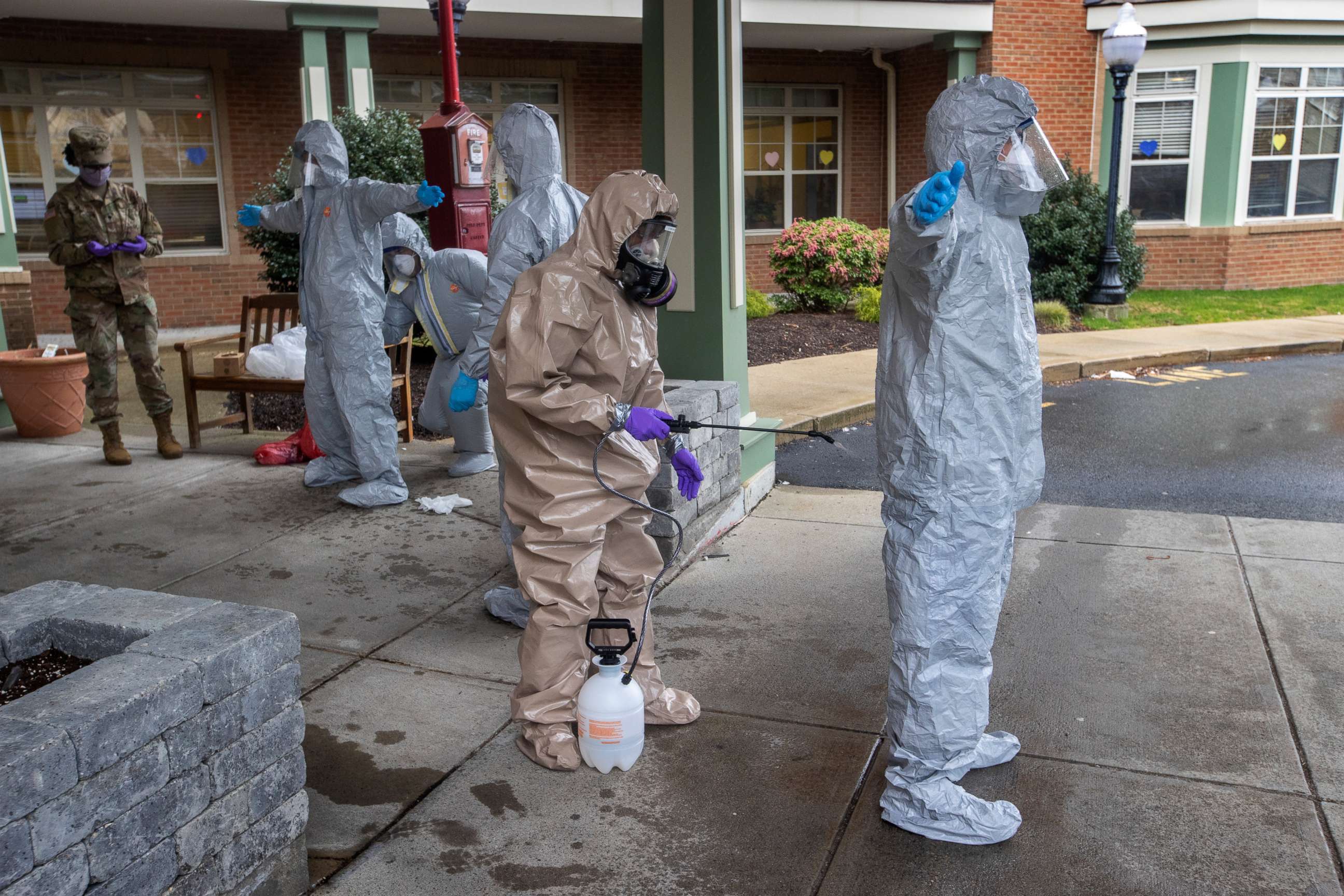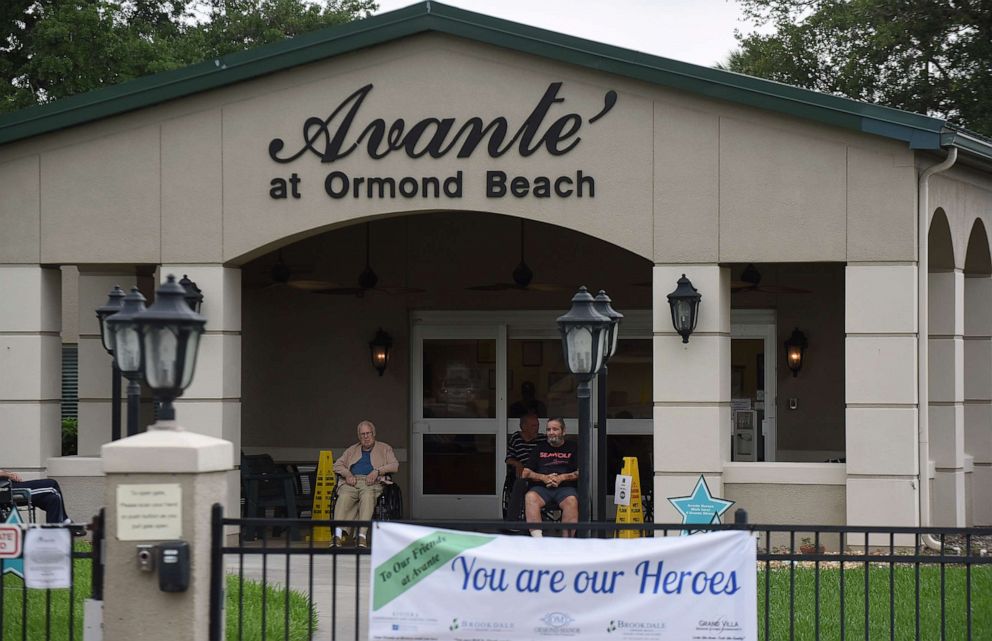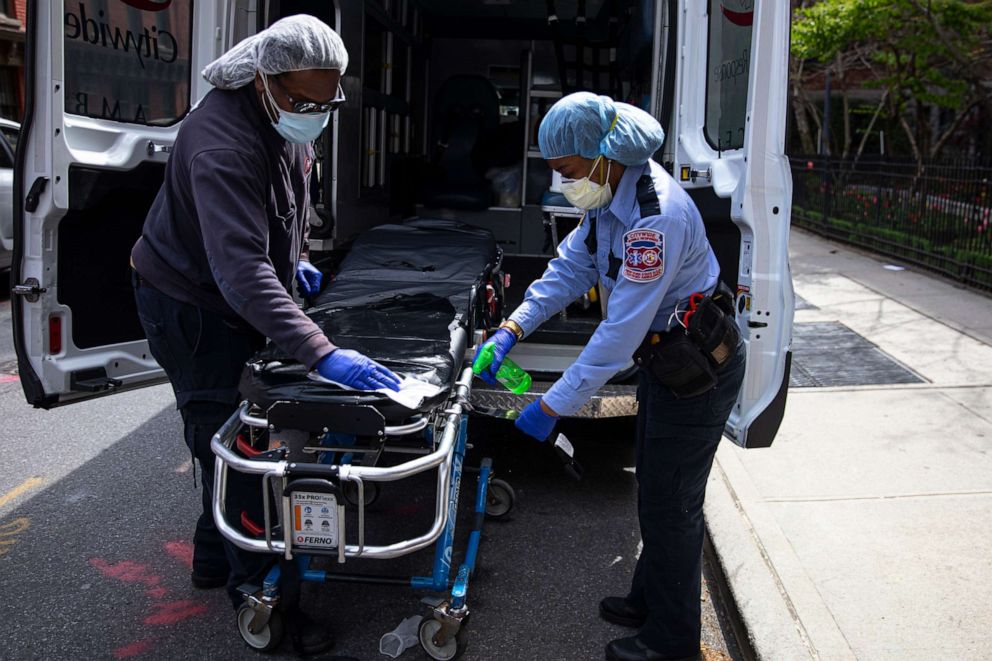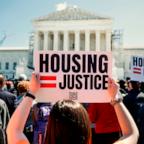Advocates demand stronger federal action as nursing homes engulfed by pandemic
Authorities reported 98 deaths at a single nursing facility in New York City.
As authorities revealed the latest mass casualty event to strike an American nursing home amid the pandemic, advocates for the elderly decried an inadequate federal response to the crisis.
Nursing homes have been especially devastated by COVID-19. A nationwide review by ABC News found more than 10,000 long-term care residents have died of the virus in just the 28 states that responded to a request for figures. In some states, deaths in nursing homes account for as many as half of all coronavirus-related fatalities.
On Friday, officials acknowledged that the novel coronavirus had claimed the lives of 98 residents at a single New York City nursing home, a loss that Mayor Bill de Blasio called “absolutely horrifying.”
Critics have argued that the federal government has responded too slowly to the worsening situation in nursing homes, where elderly residents have been especially vulnerable to the spread of COVID-19 because they live in such close quarters.
“The federal and states' response to COVID-19 has been an unquestionable disaster,” said Wes Bledsoe, founder of A Perfect Cause, a citizen's advocacy organization for nursing home residents. “Many of these deaths were needless and completely avoidable.”

Last week, authorities reported that 70 residents had died as the virus quickly spread through the 543-bed Andover Subacute and Rehabilitation Center in western New Jersey. That record death toll was eclipsed on Friday when the 705-bed Isabella Geriatric Center in Manhattan reported the deaths of 98 residents since the outbreak began to take hold in March.
According to a statement issued yesterday by the nursing home in New York, the facility had limited access to widespread testing to diagnose residents and experienced staff shortages – problems being reported by many facilities around the country.
“Sadly, while we have always had daily health screenings of staff, this hampered our ability to identify those who were infected and asymptomatic, despite our efforts to swiftly separate anyone who presented symptoms.”
The owner of Andover issued statements to the media saying staffing there was “solid,” but that the home found itself “on the front lines of this crisis.”
Both facilities were overwhelmed so quickly, they reportedly experienced difficulty handling the number of bodies.

As nursing homes operators have issued increasingly urgent requests for supplies, Vice President Pence announced plans to protect nursing homes last week, telling governors the Trump administration was organizing the first federal shipments of gowns, gloves and masks directly to nursing homes, a departure from the earlier strategy which had relied on states to provide supplies to nursing home facilities.
“We are literally contracting to ship direct what amounts to [protective equipment] packages to all 15,000-plus nursing homes in the country,” Pence said on a call with governors earlier this week.
Governors have been trying to manage the crisis as well. Gov. Larry Hogan, a Maryland Republican who chairs the National Governor’s Association, held a press conference last week to say the state “will continue to take aggressive actions to address the spread of COVID-19 in Maryland nursing homes,” calling those steps “critically important to our state’s recovery efforts.”
Seema Verma, the administrator of the Centers for Medicare and Medicaid Services, told ABC News last week that she believes the federal response has been robust and focused on supporting state officials.
“At the federal level, we are trying to support what state and local officials are doing by the end of the day,” Verma said. “The response is, as we've said many times, it's locally executed. It's state managed and federally supported.”

Pence’s announcement was greeted as good news by industry officials. But while some facilities in some hard-hit locations, including New York and New Jersey, expect those shipments to arrive next week, others are not scheduled to arrive until July.
According to documents sent by FEMA to some county Departments of Health and obtained by ABC News, the shipments will contain a seven-day supply of personal protective equipment, calculated based on the staffing size of the facility. Nursing homes will likely not be notified, the document said, in advance of the arrival of their shipment.
Bledsoe and other advocates said it was all too little too late for facilities in need.
Toby Edelman, a Senior Policy Attorney at the Center for Medicare Advocacy, said the shipments of personal protective equipment are “totally inadequate and very late in coming.”
“FEMA should have sent [equipment] to every nursing home after the first outbreak,” Edelman said.
Carol Herman, president of the Foundation Aiding The Elderly, said she is “very pleased about the shipment of supplies” but said “this should have been done months ago. So many elders had to suffer to make it happen.”
And Mary Kay Henry, president of Service Employees International Union, a labor union that represents many nursing home workers, said she has grave concerns about the numbers of workers dying, a figure that has not been tracked by states or the federal government.
“If this administration does not start doing everything possible to expedite [protective equipment] to nursing homes and assisted living facilities so that frontline healthcare workers and residents are protected from the virus,” Henry said, “not only will more Americans tragically, needlessly die, we will prolong any real recovery from this pandemic.”
What to know about coronavirus:
- How it started and how to protect yourself: coronavirus explained
- What to do if you have symptoms: coronavirus symptoms
- Tracking the spread in the US and Worldwide: coronavirus map
Tune into ABC at 1 p.m. ET and ABC News Live at 4 p.m. ET every weekday for special coverage of the novel coronavirus with the full ABC News team, including the latest news, context and analysis.




